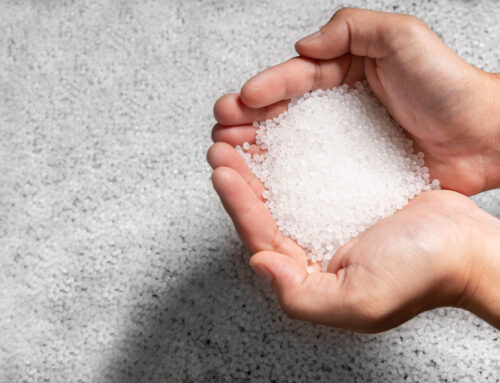Seal the Deal: Closure Torque Validated for Purillex® Bottles
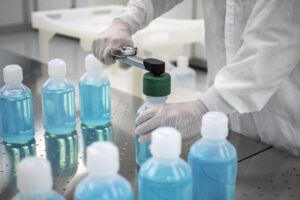
A review of Container Closure Integrity Testing (CCIT) performed on Savillex Purillex PFA Bottles.
Many Life Sciences applications, including autologous cell therapies, and bulk drug storage (BDS), require absolute container integrity to ensure sterility. Bottles, vials, sample jars and other rigid containers are the natural choice for these applications due to their durable construction and strong closure systems.
Closure torque validation is a key element in maintaining rigid container integrity; however, the container must also be usable in clinical settings, where clinicians may have limited dexterity due to the use of multiple glove layers.
Standard laboratory bottles are widely used for critical applications yet feature closure seals designed for general lab use. These closure seals are often made from a different material than the bottles and with varying mechanical characteristics. Inserted seals are also utilized, which can fall out and become lost. Furthermore, there is a danger of high extractable levels originating from the polymers used.
Savillex Purillex containers are an excellent choice for critical Life Sciences applications as they feature superior closure designs which ensure a better seal and exceptional protection of contents. Both the bottle thread and closure of Savillex Purillex bottles are injection molded, resulting in high precision, threaded sealing surfaces. They also utilize a ferrule-style seal that does not require a secondary seal or gasket – even in extreme environments.
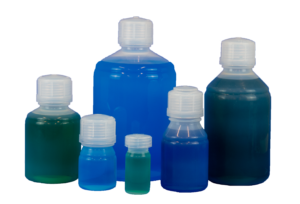
The following study was conducted by a major regenerative medicine company to perform application-specific validation of closure torque of Purillex bottles using CCIT (Container Closure Integrity Testing) methods. A significant consideration was the removal of closures in surgical suites, where clinicians use multiple glove layers. The study was intended to evaluate and quantitatively measure the associated leak rate for the container closure integrity of the test bottles using helium mass spectrometry as per USP <1207>.
Test Procedure
The following materials were used for the Purillex bottle CCIT:
- Savillex Purillex PFA Bottles, 100 mL
- SIMS 1284+ helium leak detector
- Torque wrench with closure adaptor
A total of forty (40) 100 mL Purillex PFA test bottles were used. Each bottle closure was torqued to the following values using a calibrated torque wrench:
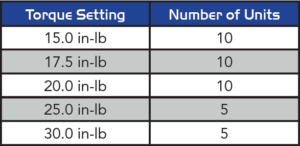
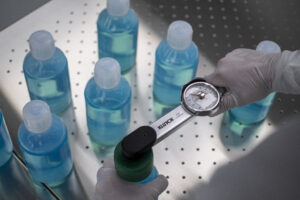
The bottles were closed with five different torque values in an attempt to determine the optimal torque value for the application.
Positive controls were assembled with a laser drilled defect with a nominal diameter of 0.2 μM on the bottle neck:
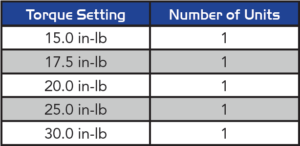
Leak Test
A separate method feasibility study was performed to confirm whether the application of helium leak technology was fit for the assessment of the bottle closure system and to develop an appropriate technique for testing the bottles. Permeation trials were conducted to differentiate between helium permeation through component materials and actual leakage.
Over the 300 second test period, all test samples exceeded the “Kirsch criterion” acceptance limit of 6.00E-06 mbar·l/s due to permeation, having remained below the fail limit for at least 90 seconds.
In contrast, all positive control tests units (laser drilled and gross defects) yielded results that exceeded this value in the test cycle by 10 seconds post-helium introduction.
The 20-second time point was chosen for the leak test as it was at least one full order of magnitude between the negative and positive control helium leak rates.
Method Feasibility
The leak test method was performed per USP <1207> Package Integrity Evaluation – Sterile Products and according to the ASTM F2391-05 (2016) Standard Test Method for measuring package and seal integrity using helium as the tracer (vacuum mode).
Results

Conclusion
The results of this study indicate that Purillex bottles torqued to 17.5 ± 0.1 inch-pound or higher yielded helium leak rates below the acceptance limit and therefore passed. This confirmed the integrity of the bottle closure package system at the applied torque settings. Critical material arrived with no leaks or damage.



